Back to Conference Info
AMP (Ortho Montana, Intermountain Healthcare and Yellowstone Surgery Center)
33rd Annual Magic City Sports Medicine Conference
Date: May 18th, 2024
Conference Theme: Connecting Regional Culture with Sports Medicine
Domains:
Domains of Athletic Training (Practice Analysis 8th Edition)
I: Risk Reduction, Wellness and Health Literacy
II: Assessment, Evaluation and Diagnosis
III: Critical Incident Management
IV: Therapeutic Intervention
V: Healthcare Administration and Professional Responsibility
Objectives: Following this program attendees will be able to:
- Examine multiple sources and perspectives to understand how Native Americans are represented in today’s society with their actual customs, traditions, and way of life.
- Recognizing different cultural attitudes, beliefs, and expectations so that health care professionals can modify their professional behavior accordingly to reflect their sensitivity to their patients’ needs.
- Discuss through question and answer format that understanding different cultures, ethnicities and backgrounds can help healthcare providers provide better quality of care.
- Differentiate between pediatric and adult ACL reconstructions.
- Demonstrate through hands-on practice the design and modification of splints for the upper extremity.
- Design and implement a preventative and reconditioning program for various injuries.
- Describe and demonstrate proper fitting/adjusting on the most common braces for orthopedic injuries.
- Identify specific nutrition concepts that are specific to athletes.
Participant Assessment: A quiz will be given to assess learning as well as all attendees must complete a program assessment and evaluation. Upon completion of these a Statement of attendance will be issued.
From the BOC Approved Provider handbook: Professional practice gap is the difference between the current state of “what is” and the desireable or achievable state “what should be” in regards to competency, performance and/or patient outcomes. Educational need is defined as the need for education on a specific topic identified by a gap in professional practice. This is the foundation of developing compliant CE programs under BOC requirements
The goal of any CE activity is to change competence and/or performance and’or patient outcomes.
Professional Practice Gap: The 33rd Annual Magic City Sports Medicine Conference is an annual sports medicine conference that focuses on the education of athletic trainers, physical therapists and other allied health care fields. At the conclusion of the 32nd Annual Magic City Sports Medicine Conference, an evaluation from the attendees was collected and those results were tabulated. The results from the evaluations requested specific topics to be discussed by experts in the field such as pediatric ACL repairs, management of dislocations, modalities, and cultural considerations in healthcare. The results also requested for updates and advancements in the field of orthopedics.
Educational Need: The planning committee for the 33rd Annual Magic City Sports Medicine Conference identified topics and speakers to meet the practice gap and educational needs.
The focus of this year’s conference is on “Connecting Regional Culture with Sports Medicine.” The Athletic Medicine and Performance (AMP) team of orthopedic surgeons, physical therapists, athletic trainers, registered dieticians and strength and conditioning personnel will work towards the same goal of returning an injured athlete back to their specific sport.
HCP should also be culturally competent/sensitive. The difference in treatment strategies from one geographic region to another varies. The anatomy and physiology are constant, but treatment standards vary depending on resources, practitioner knowledge and cultural standards.
Clinical Bottom Line:
Athletic trainers, physical therapists and other allied health care professionals need to be cognizant of the differential diagnoses for injuries in order to be able to identify, refer, treat and return to play for each specific case. An interdisciplinary team cohesively networks to improve the outcome of patient care as these professionals work together to accurately diagnose, treat – including surgical interventions and rehabilitate and recondition patients to return to activity/sport. Treatment plans, appropriate referral strategies, understanding of surgical techniques, nutrition services and prevention and reconditioning programs are all key components to individualized plans of care.
References: will be on presentation slides
PowerPoint/Google Slides will be available for all attendees on the AMP website: www.ampmontana.com
Speakers will disclose any conflicts of interest during their presentation and abide by Copyright law (see www.copyright.gov).
